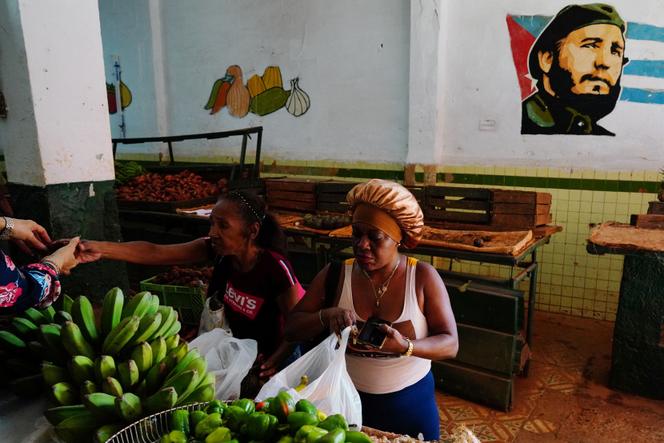


Hundreds of Cubans, having once again been cut off from electricity – this time for over 12 hours – defied the regime and let their anger explode in the Caribbean island's southeast on Sunday, March 17. In the streets of the country's second-largest city, Santiago de Cuba, as well as in Bayamo, in Granma province, they chanted "food and electricity," as seen in videos compiled by independent media outlets 14ymedio, Diario De Cuba and El Toque.
"Freedom" and "no more blabla" were the other demands made during these protests, which quickly went viral across the diaspora's social media groups. Some of the videos featured the slogan "Patria y vida" ("Fatherland and life"): the title of a song written by the regime's opponents – one of whom, Maykel Osorbo, is in prison – which runs counter to Castro's "fatherland or death" slogan. At night, banging pots and pans were heard in Santa Clara, near Matanzas in the country's west. Arrests have been filmed, though human rights organizations have not yet been able to establish the number of detainees.
"People are hungry, there's hardly anything to eat and the power cuts mean that what little they have in their fridge will rot," explained journalist Luz Escobar, who has been living in exile in Madrid for the past year and a half. "In Santiago, local authorities have brought in a truckload of rice and a truckload of milk to calm the protesters' anger. But this anger is not going to die down because people have lost hope and hunger has killed fear."
Unrest had been growing for weeks in Cuban society, which was facing serious shortages. In February, several cities warned the population that rations of milk, provided for in the libretas – supply booklets that are supposed to guarantee residents minimum rations of food at very low prices – were now reserved for under-14s. As for the rest – rice, chicken, flour or sugar – these basic products have increasingly been in short supply. People have been forced to wait for days and endure unending queues to have a chance to obtain them.
On the so-called "informal" market, the national monthly minimum wage of 2,100 pesos (around €80) is no longer enough to buy even a carton of eggs. At the end of February, the Cuban government had to ask for aid from the World Food Program to guarantee the supply of powdered milk for children under 6.
"Several people have expressed their dissatisfaction with the situation of electrical service and food distribution," Cuban President Miguel Diaz-Canel acknowledged on X on Sunday evening, all while seeking to minimize the scope of the unrest and discredit the protesters. "This context is attempted to be taken advantage of by the enemies of the Revolution, for destabilizing purposes," he added, attributing the unrest to "terrorists based in the United States," who have sought to "encourage actions against the internal order of the country."
You have 45.92% of this article left to read. The rest is for subscribers only.
